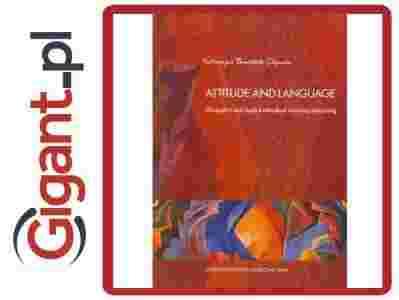 Książki > Nauki społeczne, humanistyczne, ekonomiczne > Językoznawstwo
|
|
| |  |
 | | | This book explores how language and attitude conspire to communicate attitudinal meaning (e. g. criticism, praise). It takes an experimental pragmatics perspective and assumes an exploratory approach, drawing insights from interdisciplinary research, to explain how linguistic means and attitude cues bind to communicate attitudinal stance (approval, disapproval). The explorations are settled at three distinct levels: (i) behavioral, concerned with verbal and nonverbal means of manifesting attitude; (ii) mental, dedicated to the inferential heuristics involved in attitude comprehension; and (iii) neuro-physiological, exploring the brain mechanics underpinning attitude processing. The book offers state of the art theoretical, and empirical evidence on the language / attitude interface, and presents novel, experimental findings, demonstrating that message-level attitude processing is co-govemed by affect specific and language specific mechanisms. The underlying idea of the book is that speakers guide (explicitly, or implicitly) their interlocutors to grasp the emotional significance of the communicated message, by marking the linguistic contents with attitude cues. To express their attitudes, people rely on two complementary systems of communicating significance: linguistic means - to say what they mean, and attitudinal means - to express how they feel. In verbal interactions, people constantly make inferences not only about what others mean by what they say, but also about their attitudes. Therefore, attitude is not an auxiliary piece of information, an add-on to the linguistic contents of a message, but it is an essential part of it. Language and attitude are examined in this book as two mutually complementary, non-redundant systems of imparting attitudinal meaning. |  |
|  | | Wydawnictwo: |   Wydawnictwo Naukowe UAM Wydawnictwo Naukowe UAM | | Nr katalogowy (ISBN): |  978[zasłonięte][zasłonięte]32273 978[zasłonięte][zasłonięte]32273 978[zasłonięte][zasłonięte]32273 978[zasłonięte][zasłonięte]32273 | | Data wydania: | 2[zasłonięte]014-09 |
|
|  |  | |
|  |
Książka - dokument piśmienniczy myśli ludzkiej, raczej obszerny, w postaci publikacji wielostronicowej o określonej liczbie stron, o charakterze trwałym. Słowo o bardzo wielu pokrewnych znaczeniach. Dzisiejsza postać książki wywodzi się od kodeksu, czyli kartek połączonych grzbietem, które wraz z rozwojem pergaminu zastąpiły poprzednią formę dokumentu piśmienniczego, czyli zwój. Więcej informacji na: http://pl.wikipedia.org/wiki/Ksi%C4%85%C5%BCka |

